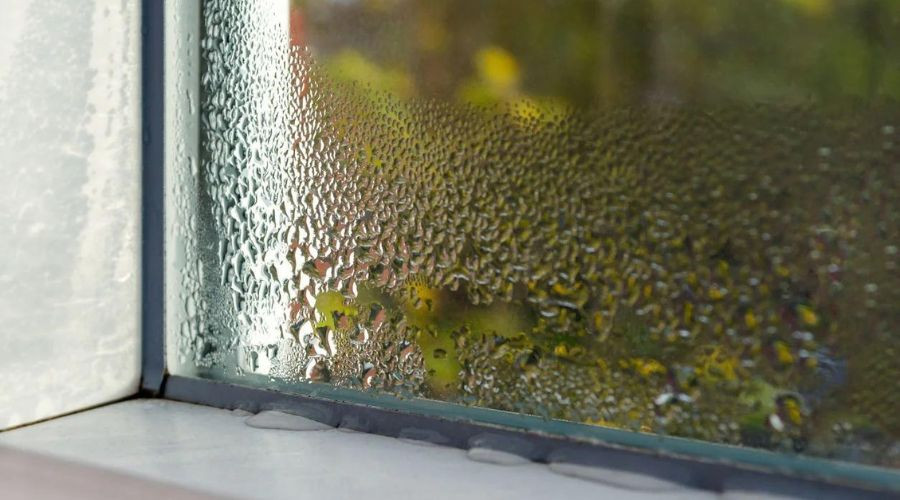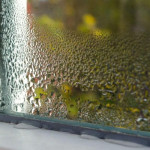The Effects of Humidity, Humidifiers, and Dehumidifiers
When it comes to indoor air quality, the first thing that comes to mind is how clean indoor air is, and while that certainly is a focus, the humidity level indoors shouldn’t be overlooked. This article will share the effects of humidity levels at home and discuss the importance of installing a humidifier or dehumidifier when necessary.
The Effects of Humidity Indoors
Humidity describes the amount of water vapor in the air, with high levels indicating a more humid or what feels like a wetter atmosphere, and low humidity levels indicate a less humid or dryer-feeling environment. Humidity levels within a home are critical in establishing a comfortable and healthy living environment.
At optimal levels, which typically range from 30% to 50%, humidity helps to maintain a balance that can prevent the growth of mold, mildew, and other allergens. This equilibrium is vital for those who suffer from respiratory issues, as both excessive dryness and excessive moisture can exacerbate such conditions.
Too much humidity can create an inviting habitat for dust mites, mold, and mildew, all of which are common allergens that can impair indoor air quality and lead to health problems, particularly for individuals with asthma or allergies. High humidity levels can also cause condensation on windows and walls, leading to structural damage over time.
On the other hand, too little humidity can dry out the air within a home, which may lead to dry skin, irritated sinuses, and an increased susceptibility to colds and infections. Additionally, low humidity can cause static electricity to build up and can damage wooden furniture and flooring by causing cracking and warping. Regulating indoor humidity is, therefore, essential to fostering a healthy home environment.
How Installing a Humidifier Can Help
 Homeowners may recognize the need for a humidifier installation from telltale signs like persistent dry skin, irritated sinuses, or frequent static electricity shocks, especially during the colder months when indoor heating systems can deplete the air's moisture.
Homeowners may recognize the need for a humidifier installation from telltale signs like persistent dry skin, irritated sinuses, or frequent static electricity shocks, especially during the colder months when indoor heating systems can deplete the air's moisture.
Installing a humidifier can mitigate these discomforts by maintaining a balanced humidity level, promoting personal comfort and health by improving skin hydration, and helping people sleep better. It can also help protect wooden furniture, flooring, and musical instruments from drying out and reduce heating costs since moisture in the air makes it feel warmer. Additionally, maintaining optimal indoor humidity can reduce the survival of flu viruses on surfaces and in the air, potentially lowering the risk of respiratory illnesses and infections.
How Installing a Dehumidifier Can Help
 Homeowners may notice the need for a dehumidifier installation by recognizing signs such as persistent musty odors, mold or mildew, or noticeable moisture and condensation on windows and walls. High humidity levels can also make a home feel stuffy and contribute to health issues by creating an environment where allergens like dust mites and mold thrive.
Homeowners may notice the need for a dehumidifier installation by recognizing signs such as persistent musty odors, mold or mildew, or noticeable moisture and condensation on windows and walls. High humidity levels can also make a home feel stuffy and contribute to health issues by creating an environment where allergens like dust mites and mold thrive.
Installing a dehumidifier helps maintain an optimal humidity level, providing benefits like a more comfortable living environment and reducing musty odors and the risk of mold growth, which improves health. Further, dehumidifiers can work with HVAC systems, potentially reducing energy costs as air conditioners can operate more efficiently in a properly balanced humidity setting.
About Stuart Pro Heating & Air
Stuart Pro Heating & Air is a family-owned and operated business serving Buford, GA, and the surrounding areas since 1997. They provide upfront and flat rate pricing, on-time arrivals, and tailor-fit solutions. Call them today for a dehumidifier or humidifier installation in Buford, GA.







